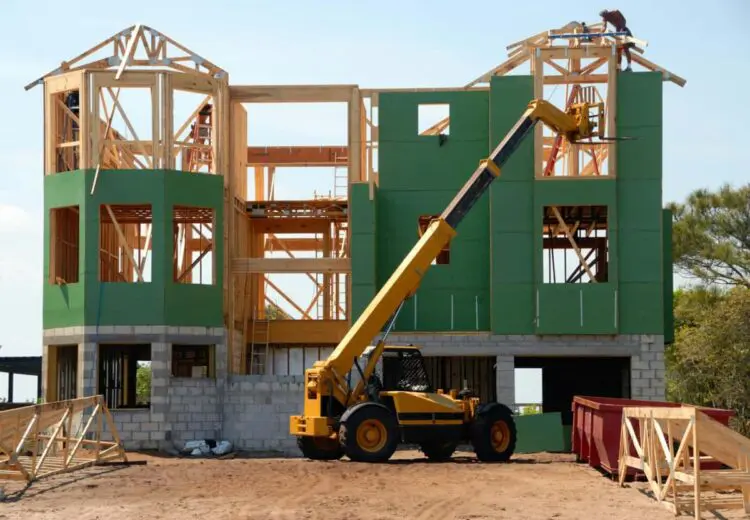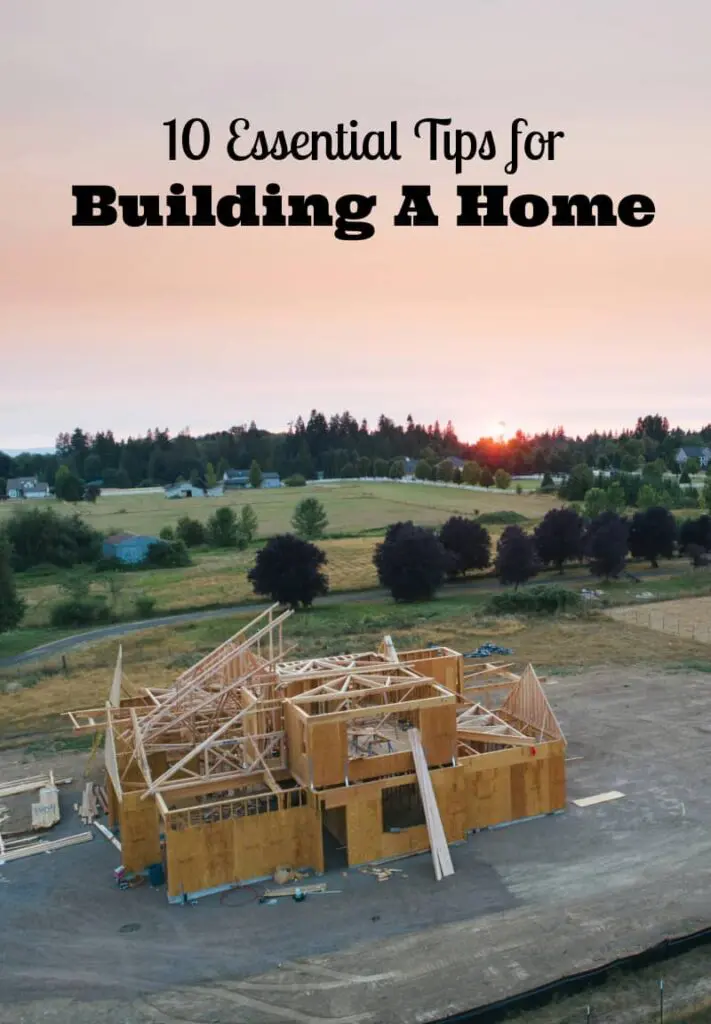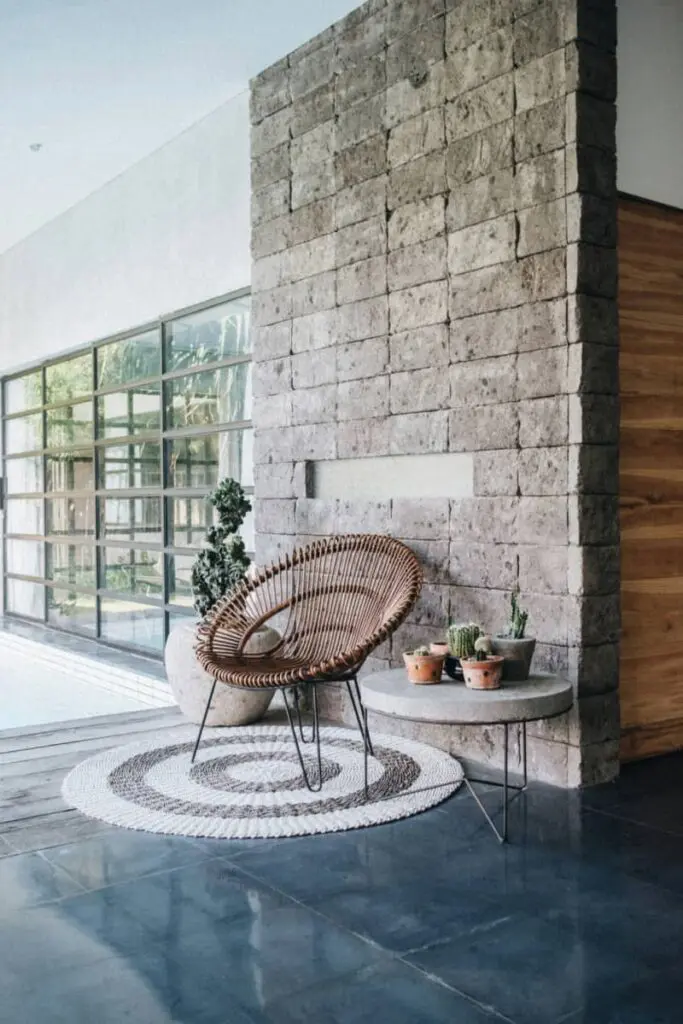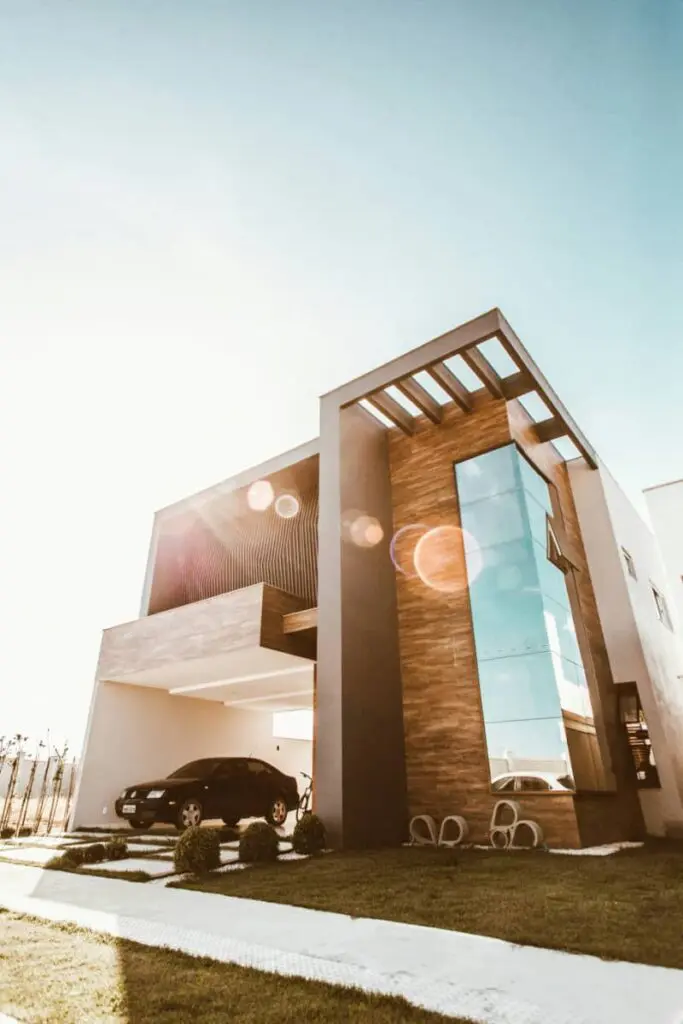One of the most stressful and yet exciting experiences you could ever have in life is to build your first home. It’s overwhelming, but it’s exciting to be able to dictate what you want for a house and then watch it come to life. For many, building a home is a once in a lifetime project and it involves months and sometimes years of planning, budgeting and decision making. Whether you’re embarking on a major renovation that feels like a new home build or you’re building a new house from scratch, we’ve got tips that can help to guide you to make smarter choices.

How Much Does It Cost To Build A Home?
The cost of building a home varies based on factors like location, square footage, design, and material choices. According to Today’s Homeowner, average construction expenses range from $130.97 to $523.88 per square foot. For instance, a 2,000-square-foot home might cost between $261,940 (standard) and $1,047,760 (luxury), excluding land acquisition and site preparation costs. As you can see from the huge price range, the cost to build a home can increase significantly with high-end finishes or custom designs. Land prices also influence the total expenditure; the average cost per acre in Tennessee is about $14,400, though this can vary widely depending on the specific location.
Along the way, there will be many challenges, hurdles, and unexpected twists that can really test your resilience. And you’re going to face all of this and more when you navigate the complexities of building your dream home. From understanding why you need a commercial roofing contractor to understanding how to tackle design dilemmas, there are tough decisions that you have to make on where to splurge, where to save, and what lessons you’ll need to learn as you build your first home.
How Long Does It Take To Build A Home?
The time required to build a home varies based on factors such as design complexity, size, and weather conditions. On average, constructing a single-family home in the United States takes approximately 8.3 months from start to finish, according to a 2022 U.S. Census Bureau report. Owner-built residential buildings take even longer (on average 12.1 months). It’s important to note that these building process timelines can be influenced by factors such as permitting processes, site preparation, and material availability.

1o Tips Before You Build A Home
Building a home is an exciting yet complex process that requires careful planning and informed decision-making. Before breaking ground, it’s essential to consider factors like budget, location, home design, and construction timeline. Understanding zoning laws, obtaining necessary permits, and selecting a reliable builder can prevent costly mistakes and delays. Additionally, factors such as financing options, material choices, and energy efficiency should be evaluated to ensure a smooth and successful home-building experience. Proper preparation and research will help turn your dream home into a reality while minimizing unexpected challenges along the way.
Be conscious of your spending.
It’s so important that you are conscious of what you are spending in this house compared to what return you could get if you ever sell it. Now, most people who decide to build a house build their dream home, which means that there are never any plans to sell, but life happens. While you may not be planning to sell at the start, you may end up having to sell later on. It’s very easy to get caught up in the excitement of creating a dream house, and while it’s exciting to splurge on certain elements, over capitalizing can be very costly as a mistake. Create a house that has lasting value without you being too far out of pocket.
Decide early where you want to splurge.
If you want to have that spacious kitchen or that amazingly equipped laundry room, you need to make sure that you budget for those. The process of building your house can help you to allocate your budget in a way that feels purposeful, so make sure that you are putting together a list of things that are practical as well as a short list of luxuries you really want. You want the luxuries that will enhance your daily life without massively overspending. But if you budget for anything, it’s not overspending, is it? The process of allocating your budget is going to take some time, so decide where to spend and where to cut back. But just don’t cut back on things like the roof, the plumbing or the electric. Those are must haves and you want to have the best of the best of those.
Invest money in your kitchen.
For many, the kitchen is a focal point of the home and you want to make sure that you have put as much money as you can fit into the kitchen. From the best appliances to the best layout and the nicest cabinets, you want to ensure that your kitchen is going to be cohesive and work well for you as a family. The kitchen is also one of the most worthwhile investments of the entire build, so if you want to splurge on a luxury such as an instant hot tap or you want to have a built-in dishwasher, then you need to make sure that you’ve planned out each of these luxuries to perfection. Investing in quality materials and kitchen appliances will likely result in a much nicer and more aesthetically pleasing space.
Take time over your windows.
If you’re thinking of making your home more sustainable and energy efficient, then you need to take the time to select your windows. Ensuring that your living areas face north and have as much natural light as possible will really help you to orient your house in the right direction. You want to create a bright, airy home that has some help with passive heating and cooling, big windows allowing natural light and natural heat, and choosing the right windows makes a massive difference in terms of aesthetic as well as energy efficiency.
Don’t forget to consider your window treatments. Deciding on curtains, blinds, shades or even layered treatments is really just the beginning because you also need to consider which windows need to be frosted for security purposes. Always work with a window expert on the treatments that you choose so that not only are they aesthetically pleasing but they are functional and practical for the house.

Make a visual statement.
You want to make your home a stunning space to be, and that means creating a few visual statements throughout the house so that you can shove a little bit. Think about how you can incorporate standout elements that leave that lasting impression, whether it’s a bold centred staircase, a statement wall or newly artistic features like custom light fixtures created. Statement point in your house adds character and elevates the space more than you could imagine.
Make the master bedroom all that.
When designing a master bedroom with resale value in mind, focus on features that enhance comfort, functionality, and modern appeal. A spacious layout with a well-thought-out floor plan is key, ensuring there is enough room for a king-sized bed, nightstands, and additional seating. Walk-in closets are highly desirable, offering ample storage and an organized space for clothing and accessories. An en-suite bathroom with luxury touches like a double vanity, a walk-in shower, and a soaking tub can significantly boost the home’s value. High-quality flooring, such as hardwood or luxury vinyl, adds durability and aesthetic appeal. Smart home features, including dimmable lighting, built-in speakers, and programmable thermostats, can make the space more convenient and attractive to buyers. Additionally, large windows or a private balcony can create a bright, airy feel.
Think about your lighting fixtures.
It’s such an overlooked element when it comes to house design, but lighting needs to be thought about and in depth. The positioning of the lighting and the type of lighting that you choose can make a difference to your house and how bright or area is.You also want to enhance your security, so lighting is vital. Be mindful of where natural and artificial light will be most effective in the house because the right lighting can transform the mood and the functionality of a room.
Invest well in heating and cooling systems.
You’re building your house from the ground up, which means you get to decide whether you have in it an air conditioning unit in one room, or you go for ducted heating and cooling. Ducted heating and cooling will mean you can control the heating and cooling in each individual room. No matter what you do, you want to ensure that everybody feels comfortable and confident in their comfort in each room of the house. You should also ensure that you’re going for energy efficiency when it comes to your heating and cooling options.
Plan for changes.
You could have been visualizing this house in your mind’s eye for years, but that doesn’t mean that’s what you’re going to end up with. One of the biggest lessons that you’re going to learn is that you need to be able to adapt and maintain flexibility while you are going through this move and this process. This build process to create something open and light-filled may not always go as planned, so you need to ensure that you are open to new possibilities as the build progresses. Things may not always go according to your plan, and some of the best ideas come at a later date.

Trust that you know what you want in your dream home.
One of the most valuable and essential pieces of advice when it comes to building a house is trust your instincts. You might have a vision in mind for charcoal cabinets in your kitchen, but once you get to the build being started, prefer something a different color. You’re going to face a lot of decisions when you come to building your house.It’s always a good idea to seek input from others, but your own instincts are what’s going to trump everything else.
Conclusion
Building a home is an exciting journey that requires careful planning and the right team to bring your vision to life. Working with a custom builder ensures that every detail aligns with your preferences while adhering to building codes and local laws. The construction of your new home should involve thorough research into architectural design, home solutions, and the cost of construction to stay within budget. Collaborating with experienced realtors can help you make informed decisions about resale value, while hiring custom home builders with access to high-quality construction equipment ensures efficiency and durability. Securing the necessary building permits is essential for a smooth new home construction process. Ultimately, the best way to achieve a well-designed and legally compliant home is to work with professionals who understand the intricacies of the industry, ensuring a seamless and successful building experience.
Building your very first home requires careful planning, patience, and a willingness for change and learning. It’s an exciting adventure and it should be seen that way so if you’re about to start embarking on your own then you should be mindful of your budget and make thoughtful design decisions. By staying flexible throughout the process, you can create a home that is beautiful, functional, and energy efficient all at the same time. There will be challenges and changes along the way, but it’s going to be so worth it if you end up with your dream home.
Related Posts:
Family Goals [Examples and Goal Setting Worksheet]

Sadie says
Great insights! Building your own home is such an exciting journey, but there are so many factors to consider. Choosing the right floor plans can make a huge difference in functionality, and strong exterior walls are essential for energy efficiency and durability. Securing a construction loan can be a complex process, but having a solid financial plan in place helps make the dream of owning your own house a reality. If you’re transitioning from a current home, working with a skilled project manager can keep everything on track and ensure a smooth process. I am looking forward to more of your tips on home building!
William says
I am in the process of building a home right now- 3 months in. The first step in building a home is definitely having a solid home plan that fits your needs and budget. It’s also important to factor in labor costs, as they can significantly impact the overall expense of the project. Paying attention to interior walls and their placement can enhance both functionality and design. Plus, having a good credit score can make a big difference when securing financing for the build. Thanks for sharing these valuable insights to help me stay on top of things!
Ginny says
I am just starting on this process and I am currently looking at a piece of land that is perfect. I hope the sale goes through!
Top Luxury says
Thank you for this comprehensive guide on building a home It’s clear that you’ve put a lot of thought into covering all the essential steps and considerations that families need to take when embarking on this significant project.
I particularly appreciated the section on budgeting and planning. It’s so important to have a clear understanding of your financial situation and to set realistic expectations from the outset. The tips on prioritizing needs over wants are also very practical and helpful. This can be very useful in making informed decisions during the home-building process.
Emma says
This is something we’re currently considering. There are just so many factors to consider. Taking time to plan the master bedroom is something I’m really looking forward to! I shall remember the tip about the windows. Their importance is something that’s often overlooked.
POOJA says
Building a home is a complex journey with costs varying widely based on design, materials, and location. Smart planning is key!
KENNY says
Research has proven that construction costs may change quite widely depending on demography, the size of the house, construction materials, and the design complexity, with the most prominent being whether you have hired contractors or decided to do it yourself.